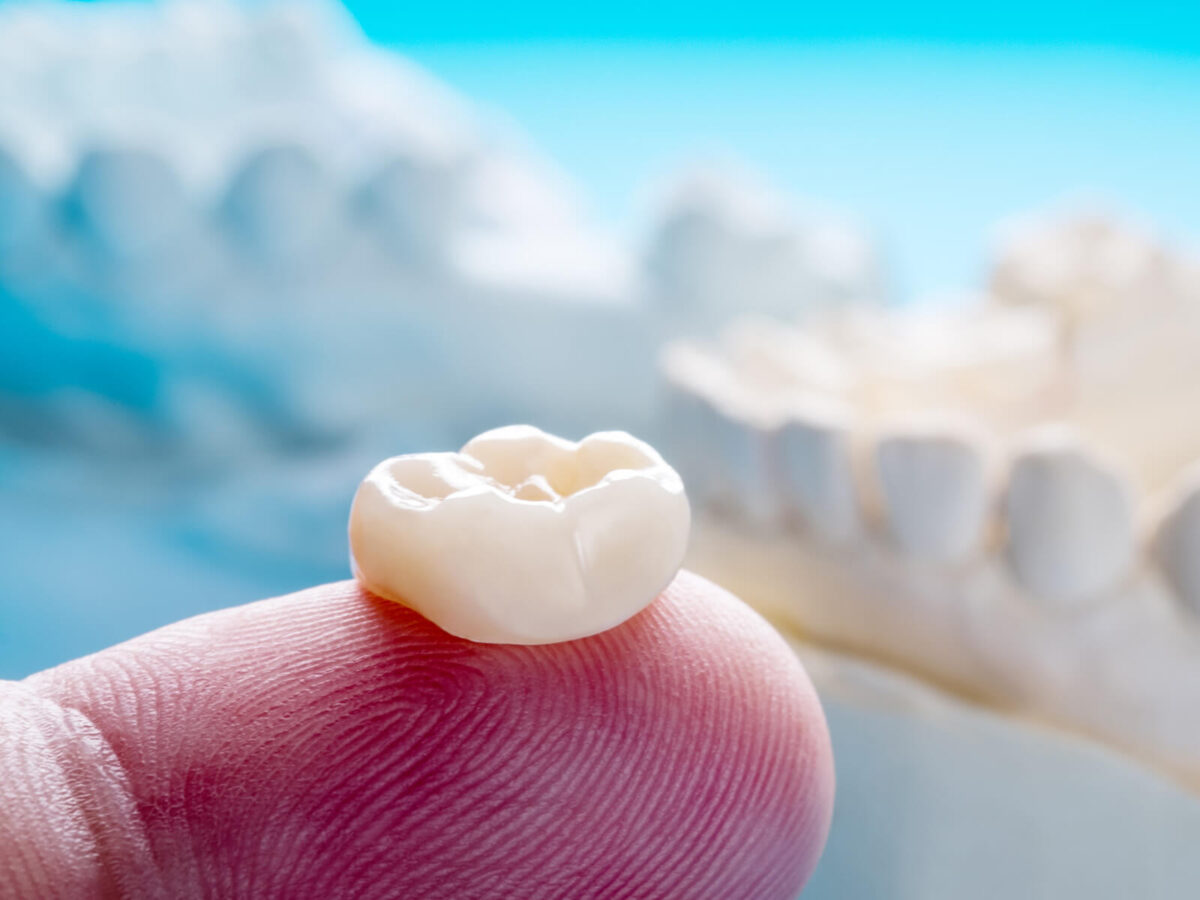Blog
Dental hygiene tips for healthy teeth & gums

What Causes Dental Crown Tooth Pain And How To Relieve It?
Dental crowns frequently repair broken or weakened teeth, giving structural support and aesthetic appeal. However, in some circumstances, dental crowns might cause tooth pain. This article discusses the numerous reasons for deferral crown tooth pain and provides complete pain relief options, such as addressing crown sensitivity and misalignment.
Causes of Dental Crown Tooth Pain:
1. Crown Sensitivity: This is a common source of discomfort after crown installation.
Causes:
- Nerve Irritation: The tooth’s nerves may become irritated during the crown preparation.
- Temperature Sensitivity: Hot or cold foods and beverages may cause sensitivity.
- Addressing Sensitivity: Desensitizing toothpaste can help reduce sensitivity.
- Fluoride Treatment: Professional fluoride treatments can build enamel while reducing sensitivity.
2. Crown Misalignment: A crown not aligned with adjacent teeth
can cause bite difficulties and discomfort.
Causes:
- Improper Fit: Improperly fitting crowns might result in biting misalignment.
- High Bite: Excessively high Crowns can put too much pressure on the opposite tooth.
- Misalignment: To address misalignment, dentists might modify the crown for optimal alignment.
- Orthodontic examination: In severe circumstances, an orthodontic examination may be required to rectify bite abnormalities.
3. Inflammation and Infection: Pain can be caused by inflammation or infection in the tooth’s pulp.
Causes:
- Bacterial Invasion: Bacteria can invade the tooth during crown implantation, causing infection.
- Pre-existing difficulties: Undiagnosed pre-existing difficulties may worsen.
- Root Canal Treatment: In cases of infection, a root canal may be required to remove the infected pulp.
- Antibiotics: If an infection exists, antibiotics may be recommended to kill bacteria.
4. Nerve Irritation during Crown Placement: Preparing a tooth for a crown can irritate nerves.
Causes:
- Extremely severe tooth preparation can irritate nerves.
- Inadequate insulation during the preparation procedure may cause nerve discomfort.
- Treating Nerve Irritation: Over-the-counter pain medicines can offer temporary relief.
- Professional Evaluation: See a dentist for a comprehensive evaluation and possible adjustments.
5. Allergic Reaction to Crown Materials: Some people may have allergic reactions to the materials used for crowns.
Causes:
- Metal Allergy: Allergic responses may occur if the crown contains metals such as nickel.
- Individuals may be allergic to the materials used in composite crowns.
- Consider replacing the crown material with a suitable alternative to address allergic reactions.
Effective Strategies for Relief of Dental Crown Tooth Pain:
1. Over-the-counter Pain Relief: Non-prescription pain medications like acetaminophen or ibuprofen offer brief relief.
Considerations: If pain persists, follow the dosage guidelines and contact a healthcare expert.
2. Desensitising Toothpaste: Helps reduce sensitivity over time.
Considerations: For maximum effectiveness, use frequently as prescribed by a dentist.
3. Warm Saltwater Rinse: Gargle with warm saltwater to reduce inflammation and improve healing.
Considerations: Rinse gently several times daily, particularly after meals.
4. Avoid Trigger Foods:
Avoidance: Temporarily avoid hot, cold, or sweet meals that cause sensitivity.
Consideration: Slowly reintroduce these foods when sensitivity improves.
5. Orthodontic Adjustments: Consult a dentist for any suspected misalignment.
Considerations: Making timely changes will help to avoid further issues and discomfort.
6. Professional Evaluation:
See a dentist: If the discomfort persists, see a dentist for a complete examination.
Dentists may utilize X-rays and other diagnostic technologies to detect underlying disorders.
7. Root Canal Treatment: A root canal may be advised for infection or severe nerve irritation.
Considerations: Root canal treatment removes infection while preserving tooth integrity.
8. Crown Replacement: If allergic responses are detected, the dentist may suggest replacing the crown with a different material.
Consider using hypoallergenic materials that are compatible with specific sensitivities.
Conclusion
Dental crown tooth discomfort might result from sensitivity, misalignment, or infection. Understanding the underlying problem is critical to effective relief. While home remedies and over-the-counter medications can provide temporary comfort, obtaining expert help is essential for treating underlying concerns. Dentists play an important role in evaluating the source of discomfort and implementing appropriate remedies, allowing people to get the benefits of dental crowns without experiencing undue pain. Regular dental check-ups, early action, and meticulous oral care all help to ensure long-term dental health and comfort.


